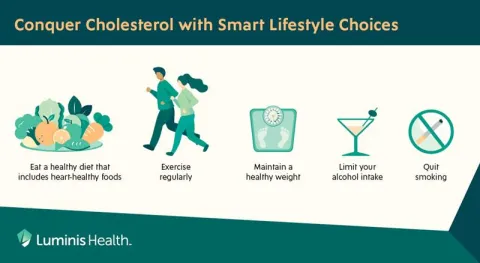by Luminis Health

Heart disease affects more than one in three women and is the leading cause of death for females, according to the American Heart Association. The risk of heart disease increases for everyone with age, but for women that risk rises significantly after menopause starts.
A natural part of aging, menopause can bring about changes that feel anything but natural. Most women enter this stage, marked by the end of menstruation and then a decline in estrogen, between 50 to 54 years of age. During this time, symptoms including hot flashes, night sweats, weight gain and fatigue, leading to a new reality full of both emotional and physical changes.
Estrogen is a complex, naturally occurring hormone responsible for many functions, like adding vital strength and flexibility to the arteries in the body, including those of the heart. A drop in estrogen can cause several different bodily reactions that don’t bode well for heart health. In fact, the rate of heart attacks dramatically increases in women about 10 years after menopause starts.
Menopause can play a part in several risk factors related to heart disease:
- Higher blood pressure. The blood vessels and heart become stiff and less elastic. High blood pressure, or hypertension, puts added strain on the heart.
- Higher cholesterol and triglyceride levels. A drop in estrogen can lead to increased levels of “bad” cholesterol (LDL), while “good” cholesterol (HDL) levels decrease or stay the same. Triglycerides are a component of body fat that can increase with menopause.
- Weight gain. Metabolism slows with age and a decline in estrogen, making women more prone to weight gain.
- Diabetes. After menopause, women become more resistant to insulin, a hormone needed to convert carbohydrates into energy for the body to use. This higher risk of diabetes puts women at a higher risk for heart disease and stroke.
The good news is going through menopause does not make you helpless against heart problems. There are plenty of simple, effective steps you can take to combat or slow down its effects.
It should come as no surprise that a balanced diet and regular exercise are essential to having a healthy heart. The American Heart Association recommends 150 minutes of weekly exercise, which translates to working out for thirty minutes, five days a week.
Aerobic fitness classes, swimming, brisk walks, jogging, dancing, hiking and biking are a few physical activities you can do to keep your heart healthy. Regular exercise will speed up your metabolism, and lower your blood pressure and cholesterol. If you have a smartphone, you already have access to free fitness apps to give you a gym-quality workout in the comfort of your home or office.
Create a diet plan full of whole and nutritious foods like fruits, vegetables, unsalted nuts and fatty fish, like salmon and tuna. Limit red meat and avoid food and drinks that are high in added sugar. And if you smoke, you’ll be doing your heart (and the rest of your body) a potentially life-saving favor by quitting.
Regular doctor appointments are also important for a healthy heart. Your doctor should check your cholesterol levels, blood pressure, body mass index and waist circumference.
As women get older, their risk for heart disease inevitably increases. Staying active, eating nutritious foods and removing unhealthy habits packs a triple punch by lowering blood pressure, lowering cholesterol and creating a stronger heart. As your body enters a new stage of life, adapting your lifestyle is a great way to stay heart healthy.
 Sadia Shafi, MD, a cardiologist at Anne Arundel Medical Center. To reach her office, call 410-224-0040.
Sadia Shafi, MD, a cardiologist at Anne Arundel Medical Center. To reach her office, call 410-224-0040.



